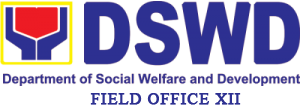Koronadal City—The Department of Social Welfare and Development in Region-12 has recently completed a total of P20.86 million social infrastructure projects in Sultan Kudarat province, an agency top official reported Monday.
DSWD-12 regional director Bai Zorahayda T. Taha said that a total of 15 community projects in towns of Bagumbayan and Isulan have been completed, in which at least 30 percent of the total project cost came from local community counterpart.
The various projects, which were constructed through one of the agency’s poverty-alleviation programs of DSWD, Kapit-Bisig Laban sa Kahirapan-Comprehensive and Integrated Delivery of Social Services or Kalahi-CIDSS or Kalahi-CIDSS, are now benefited by at least 10, 110 households.
“Most of these projects are situated in the far-flung rural communities, answering the most pressing needs of the villagers that they have been longing for a long time,” Taha said in a statement.
In Isulan, school children will no longer be jostling for spacewith new school buildings completed in the villages of Kenram, Mapantig and Kolambog while, D. Lotilla, Bual and Kudanding residents are now benefiting the potable water system project.
Laguilayan out-of-school youth found a new home with the completion of Alternative Learning Center, while farmers in Dansuli will no longer worry about destruction of their crops every time the river breaks its banks with the completion of P2.6 million, 500-meter river embankment flood protection project in the area.
A new satellite market in Impao village is also now being benefited by local residents and its neighboring communities.
In Bagumbayan, perennial problems of dilapidated, overcrowded and makeshift learning facilities will be things in the past with the completion of new school buildings in South Sepaka, Daluga and Monteverde in Bagumbayan.
Far flung villages of Sumilil and Kanulay were lighted up with the completion of Solar Battery Charging Station and Solar Home System, respectively, while Sto. Nino villagers have now access to potable water.
“These are the fruits of our collaborative efforts in fighting against poverty, empowering communities and improving local governance,” Taha added.
Through Kalahi‐CIDSS, which features a community‐driven development approach, community members are empowered to participate in governance and community development while local governments become more effective in responding to the needs of the community, especially the poor.
Kalahi-CIDSS was recently recognized by winning the 2013 International Development Impact Honors Awards by United States of America Treasury, beating 40 candidates or development programs around the world. .### (Hilbert T. Estacion, Kalahi-CIDSS-Regional Social Marketing Officer, DSWD-12)
